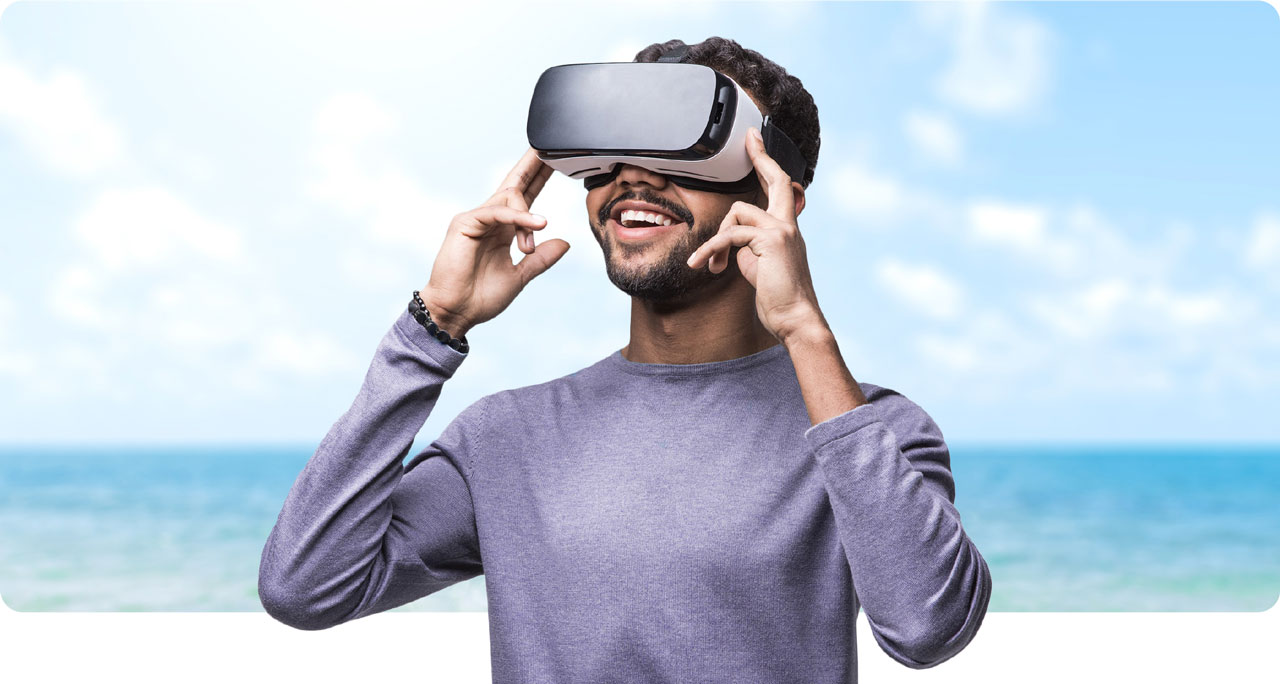In a new group called Coping with Anxiety Through Virtual Reality, patients can select two virtual reality programs to experience during each session using equipment purchased through a Princeton Health Innovations Grant from Princeton Medical Center Foundation. After each session, the group discusses how they were impacted by what they experienced and how to apply what they practiced to real life situations.
For the first part of the group session, participants choose from breathing exercises, mindfulness sessions, and relaxation programs. Their second selection focuses on guided imagery and calming distraction, such as a visit to a tropical beach, a swim with dolphins, or a stroll through the enchanting streets of Paris.
“Participants can enter the world of virtual reality quickly, and its immersive nature can help even highly distractible patients retain focus,” says Yuko Martin, MA, MT-BC, LPC, ACS, Director of Allied Clinical Therapies at the Princeton House inpatient site.
Who’s a Candidate?
Since the inception of the program, about 90 Princeton House inpatients have participated in the virtual reality group. The sessions were first introduced for patients with co-occurring disorders and those undergoing medical detox, and they are now being expanded to those with mood and anxiety disorders.
“While many patients benefit from these sessions, we also ensure safety through selective participation criteria,” explains Martin. “For example, patients with auditory or visual hallucinations, migraines, a history of seizures, or fall precautions would not be candidates.”
Positive Feedback
Participants have evaluated the success of the virtual reality group by completing surveys before and after the sessions. Results have been positive:
Average anxiety reduction rate: 35%
Average helpfulness of the group (on a scale of 1-5 with 5 being very good): 4.75
“Most participants find that the virtual reality programs are an enjoyable way to help them relax easily and effectively,” says Martin. “It’s a valuable component of the coping skills toolkit that patients can continue to use beyond the treatment setting.”
| "This is a great idea, even for people who are new to or have trouble meditating. Very immersive, it's like being in a different place where everyday stress is non-existent." — Virtual reality group participant |



